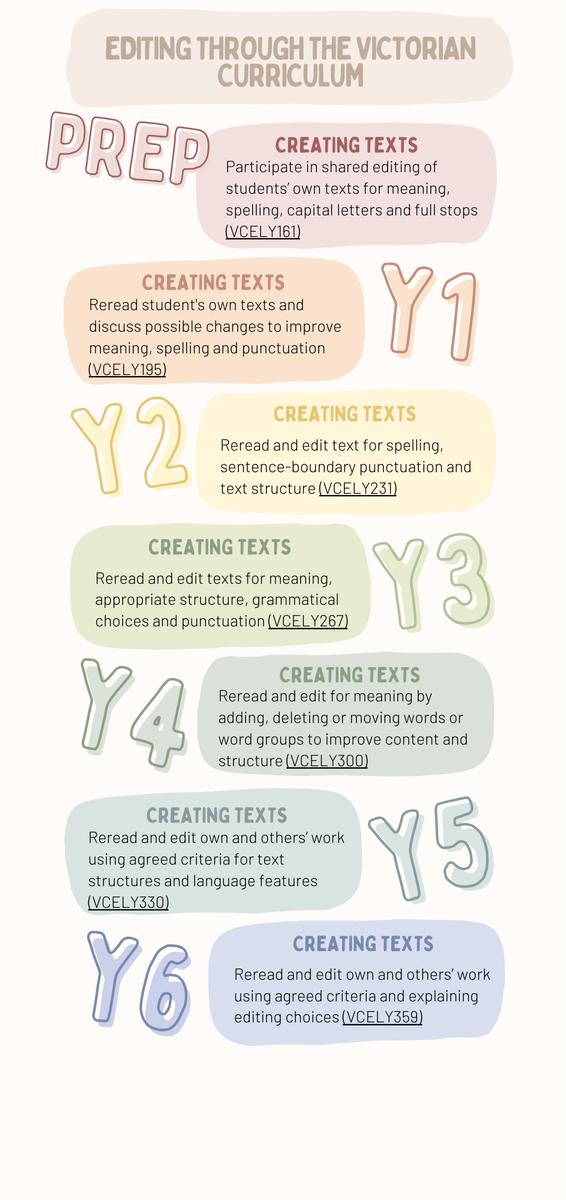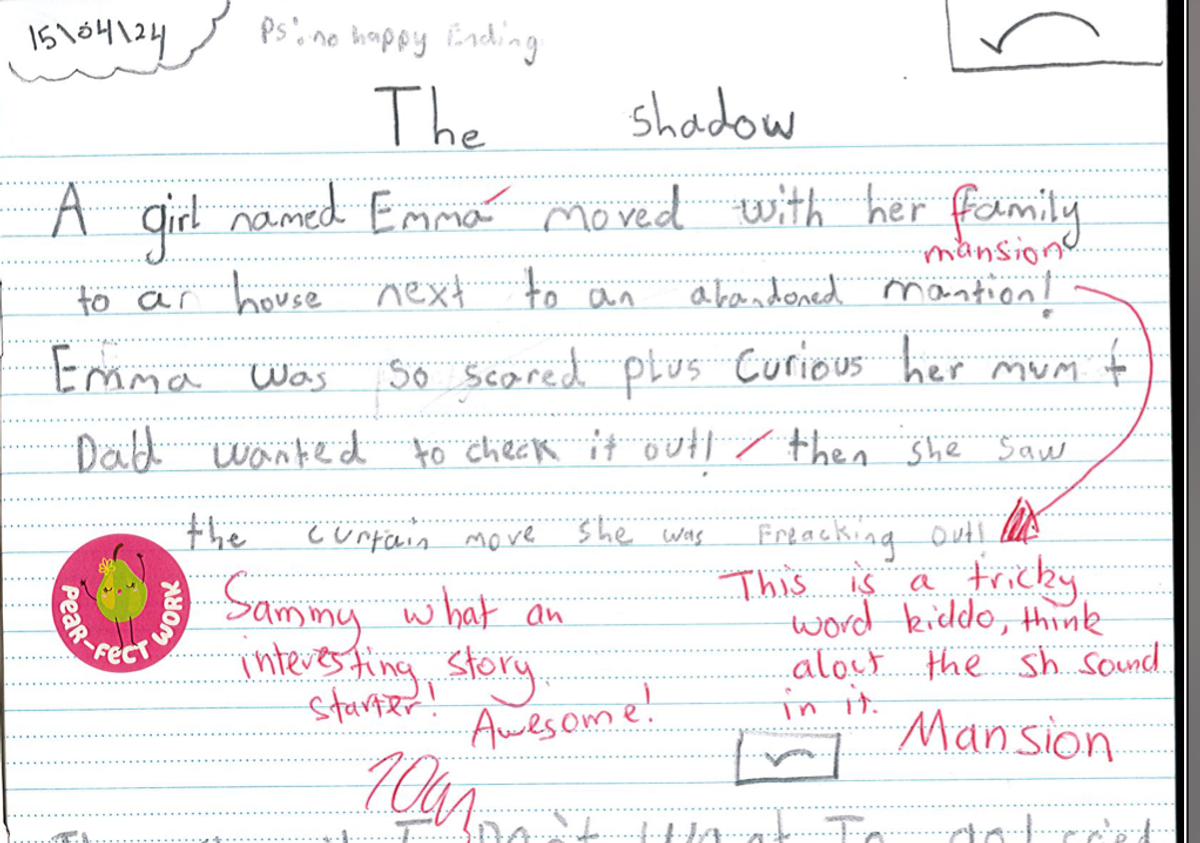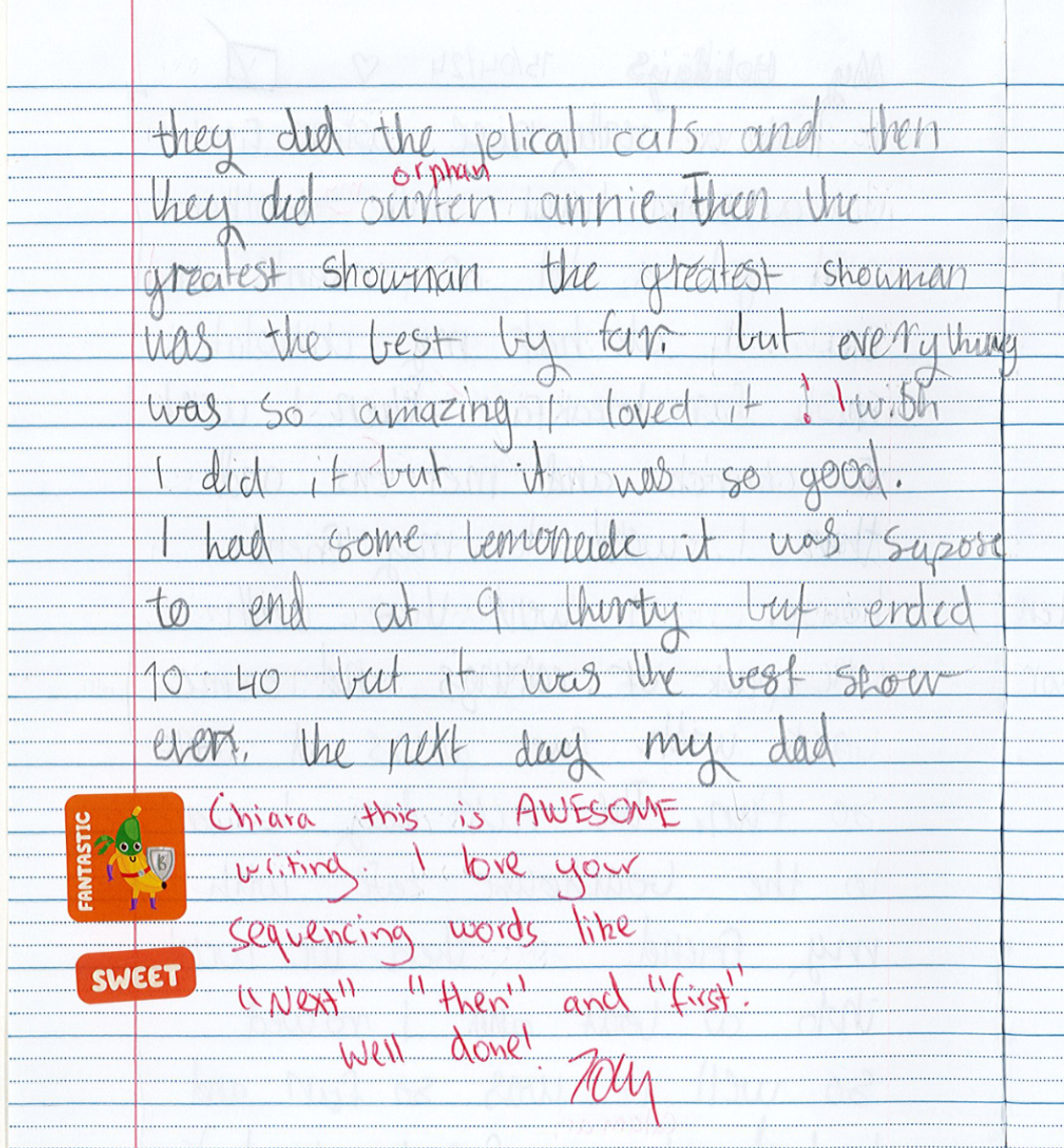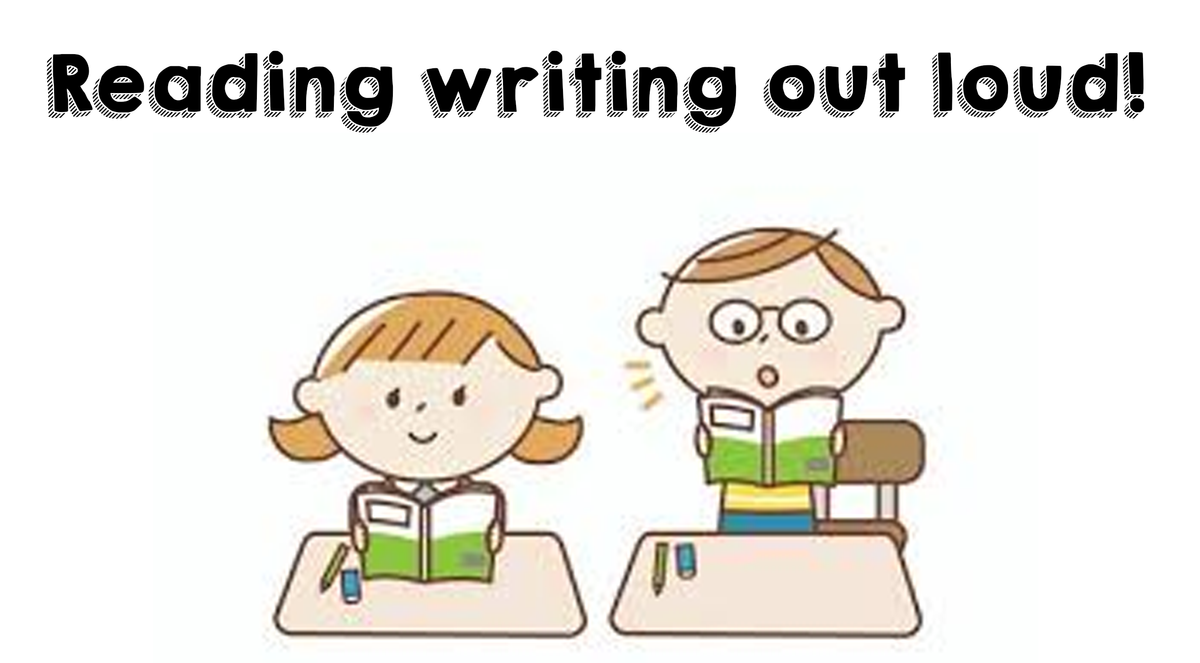English
All in the edit!

English
All in the edit!
Dear Families
I think we have all been there, racing to send an email or a message. Seeing it go through to delivered and then noticing the mistake you have made. One typo...or maybe a few more!
We know that this is a reality of writing things down, and that we will not always get it exactly right! That is why the process of editing is something that you will find all the way through the Victorian Curriculum. Students are supported and encouraged to develop their writing skills, but also the skills related to noticing when changes and corrections need to be made.
Have a quick read through the image below. It outlines the skills for each year level and the expectations about being able to read writing and making editing choices. We know that these skills will build and develop over time which is reflected in the image.


You can see how students in Prep and our Junior School begin the process of developing editing skills. They look at examples of sentences on the board and discuss what might be missing. This includes full stops and capital letters which they are busy learning about for their writing!
In Years 3 & 4, students grow to try and independently read their own writing. They are encouraged by their teachers to do this to ensure they are expressing themselves in full sentences. They may begin to unpack vocabulary choices when a sentence is completed, thinking about if there are more interesting words that could be used to really make their writing descriptive.
Further to this students in these year level begin to be better equipped to process and take onboard feedback from their teachers. They can begin to set goals for themselves and recognise areas that they may find challenging when writing. For example, having a goal of always remembering full stops or using capital letters when writing proper nouns.




This is not always a student's favourite thing in the world! After spending time carefully writing something, being asked to go back and read through it again can sometimes produce some groans! Students work through this with support and encouragement from their teachers. At this stage of writing students may also begin to make editing choices using computers, allowing them to not only double check what they have written but put in headings and images and all of the other cool things software offers.
When students reach Year Five and Six they continue to edit their writing in more developed ways including by making sure their pieces fit a text structure correctly. This might include making sure a writing piece includes all of the sections students have learnt about. For example a persuasive writing piece should feature both an introduction and conclusion, as well as a variety of persuasive body paragraphs. Students work to think about the audience of their writing, who might be reading it, and if that means they need to make changes or corrections to best suit this.
You can see from above that the editing of writing does change over time and as our students move up into different year levels, meaning the strategies in the classroom change too. As students writing skills grow, so should their editing skills. Some of the great practices we implement in our school are:
There is actually a magic trick, which would be used in all classrooms in our school to help edit writing. It is actually a trick that also might help adults with those pesky email typos as well! Are you ready to hear it?


That's right, it is as simple as that! Often when conferencing with students about their writing, teachers will ask the students to read it aloud to them.
The logic behind this is that when writing, our brains know exactly what we are trying to express. Our ideas are rushing around in our head, and our pen is scribbling away to try and get them on the page. Even when we go back and read this writing to ourselves, we have in mind the complete thoughts about what we wanted to write. Our brain actually keeps this in mind, meaning we might completely miss words we have spelled incorrectly or even left out. Our brain can show us the sentence exactly as we meant to write it.
So often when asked to read their writing aloud students will go 'Oh!' and then explain a small mistake they may have made. Reading out loud allows us to listen to and process the information of our sentences in a different way. This is fantastic for teachers too, because it allows them to offer more positive reinforcement to our students. They can make comments like "How fantastic you noticed something you want to change! I didn't have anything to do with it, that was all you!"
So next time you need to send that report or important client email maybe give reading it aloud a go!
Thanks so much for reading through as we highlight important skills in English that are a constant through every year level. We look forward to continuing to highlight all the fantastic writing our students produce, while still thinking about small editing choices which can make pieces even better!
Happy writing!
Tim O'Mahoney
English Leader